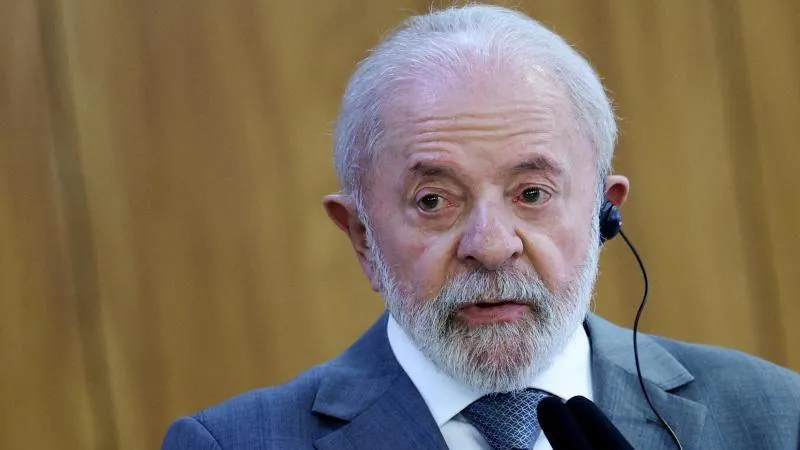Diaries of a monster: French surgeon's record details a catalogue of child abuse
Every year, on his birthday, Joel Le Scouarnec composed an entry in his diary. First, he would record his age. Then he would write: "I am a paedophile, and I am proud of it."

Warning: This article contains references to suicide and material readers might find disturbing
To the rest of the world, he seemed like a respected medical professional, a surgeon who cared for thousands of patients and provided support to their relatives. But Le Scouarnec, now 74, hid a dark secret - his compulsion to abuse children.
He's now on trial, accused of a litany of sex crimes involving 299 alleged victims, almost all of whom were his patients, and most of whom were children. In total, he's accused of 300 separate offences - 111 rapes and 189 sexual assaults - which took place across 25 years in more than a dozen hospitals.
The average age of his alleged victims was just 11 years old, split almost equally between boys and girls. He was eventually stopped in 2017, following investigations that involved multiple police forces and even the FBI.
It is a long and horrific list, agonisingly detailed by the prosecution, but it boils down to one fact - Le Scouarnec is alleged to be the most prolific child abuser ever apprehended in France and, perhaps, in all of Europe.
After decades of allegedly abusing patients without any repercussions, Le Scouarnec seemed to believe he was invincible. His crimes finally came to light when his six-year-old neighbour told her mother he had sexually abused her while she was playing in the garden of her home, in the town of Jonzac in southwest France.
The investigations that followed led to his conviction and imprisonment for raping and sexually assaulting four young girls in 2020. But evidence recovered by the police during that investigation revealed abuse on a far wider scale.
When the police entered Le Scouarnec's house, they found a scene that was both sinister and shocking. There were 300,000 indecent photos and videos of children (some hard copies and some on computers), 70 child-sized dolls - some of which were chained up - wigs and, crucially, hundreds of notebooks and diaries detailing his acts of abuse.
'This man destroyed my life'
This macabre discovery went on to change the lives of hundreds of people who had been unaware they were victims of Le Scouarnec's crimes. Among them was Marie*. Now in her late thirties, she was just 10 years old when she was hospitalised suffering from acute appendicitis. Joel Le Scouarnec was her surgeon. In his diaries, he wrote about abusing her while she was under anaesthesia.
For many years, Marie, like many of the alleged victims, didn't know she'd been assaulted, until a visit from the police shed light on a feeling that something had happened to her body which she couldn't explain.
"This man destroyed my life and the lives of so many children… When I heard I was among the alleged victims, I told myself that's the missing jigsaw piece," said Marie. "I was shocked but then I began to make a connection between this and the problems I had experienced, especially regarding my issue with intimacy and relationships with men."
The FBI raised the alarm
In 2004, as part of a global investigation into paedophile networks, the FBI found evidence Le Scouarnec had shared and downloaded pornographic images of children via a website based in the United States.
The FBI alerted French authorities and the former surgeon was arrested and then charged with possession of indecent images of minors. In 2005, the case was heard in court and he was given a four-month suspended sentence. What happened is a shocking example of how this doctor's activities were ignored, leaving him to continue his alleged abuse.
In 2006, a psychiatrist working at the same hospital as Le Scouarnec wrote to the management, expressing concern that the surgeon was practising on children despite having a conviction for sharing images on paedophile websites.
The letter was referred to the ombudsman. A similar letter of concern was sent by a trade union representing healthcare workers. But no further action was taken.
In 2008, he transferred to practise at another hospital in Jonzac. The hospital's director had the surgeon's file, which contained the documents regarding his previous convictions and letters of concern from colleagues, but chose to employ him.
That same year, an anaesthetist at the same hospital was convicted of possessing and sharing indecent images of children. He, too, was also allowed to continue to practise at the hospital and treat young patients.
'He could have been stopped'
"Nobody will attack a high-ranking surgeon," said Francesca Satta, a lawyer representing some of Le Scouarnec's alleged victims, adding that the surgeon was "overlooked" because of his position.
She added: "The evidence was there. There were searches at his home and they found indecent images of children. The diaries existed but were not discovered… he could have been stopped."
If, in 2006, he'd been prevented from treating children, there would be at least 20 fewer alleged victims in this case.
Among them was a little boy named Mathis Vinet.
His grandparents, Roland and Mauricette, welcomed us into their home with warm handshakes and cups of coffee. Their living room was filled with books and family photos. But they were on edge; burdened by grief and anger, mixed with a desperate desire for justice.
Their grandson, Mathis, was just 10 years old when he was taken to hospital with stomach pains and came under the care of Joel Le Scouarnec.
"He admitted our grandson and examined him," Roland recalled, adding that the surgeon said Mathis needed to stay in hospital overnight. "He said if anything urgent happened we would be alerted."
Le Scouarnec told the family to leave Mathis in his care. That night, he allegedly abused the boy as he lay in bed. His grandparents still have the discharge paper, signed by the former surgeon.
That day changed Mathis completely, according to his family.
The young boy who enjoyed helping his grandfather in the garden was replaced by a troubled youth whose life unravelled as he fell into addiction.
Like most of the other alleged victims, he remained unaware that he'd been attacked by Le Scouarnec until told by the police, more than a decade later.
"There was a knock at the door," Mauricette remembers. "Mathis was alone. He'd started using drugs, so he thought he might be in trouble. When they left, having told him… his world came crashing in around him. He had flashbacks and called us the next day to say he was in a bad place."
"He took drugs to make himself feel better… but it didn't work."
On the table, there is a picture of Mathis as a boy, beaming. In later pictures, he looks more sombre, as if he has turned in on himself.
In 2021, he took his own life, aged just 24 years old.
'To call him a monster is an understatement'
Le Scouarnec doesn't deny his abuse of many of the young children about whom he wrote in his diaries. He told investigators he did everything he wrote about, but didn't realise how many children there were.
"We can call him a monster but it's an understatement," said Satta, who has worked across cases involving violent murderers and notorious criminals. "He has just one thing on his mind, 24/7, and that is sexually abusing young children."
But there is another troubling unknown in this case. During the trial, 299 alleged victims will air their accusations against Le Scouarnec in court, but there could be more.
At least two years of diaries disappeared, which means more former patients of Le Scouarnec could still be unaware of what happened to them as children.
The case against the former surgeon involves so many victims, that a normal courtroom is not big enough. An annexe will be opened to accommodate the hundreds of victims, lawyers, family members, journalists and members of the public who will follow the proceedings over the next four months.
The victims will gather in a lecture theatre to watch the trial on a big screen. It is the sort of room that you might find anywhere, but as you look around, at the hundreds of seats, you are reminded that each one of these has been allocated to an alleged victim.
There are so many questions that haven't been answered. How could so many chances to stop him have been missed? Does French society have an inbuilt fear of exposing sexual crimes? Did Le Scouarnec really act alone, or did he have a network with others?
But, above all, will these victims feel a sense of closure if the allegations against Le Scouarnec are upheld?
For Marie, it's about protecting others. "This man is a predator of children. His place is in prison and he needs to stay there."
Most of the alleged victims were children when they last saw Joel Le Scouarnec. Now they return as adults, to confront him in court.
Some of the pain they suffered due to abuse in a hospital may yet be healed by the punishment of a court.
*name has been changed
-SKY NEWS







